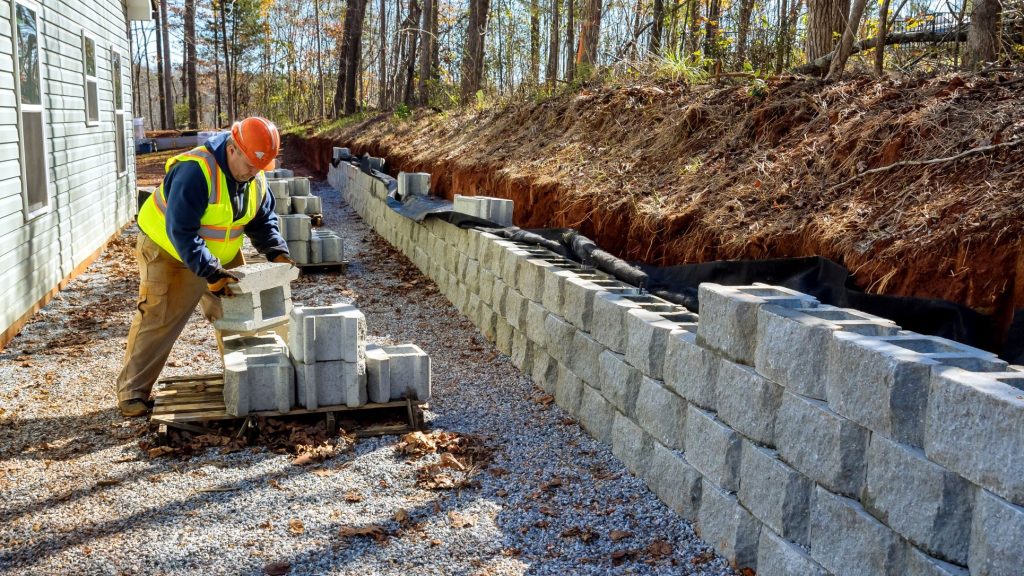
A retaining wall is a wall to holds back soil. It might seem like a simple concept, but several things happen behind it.
Retaining walls are a sophisticated engineering concept that has existed since ancient times. In addition, retaining walls improve the productivity, usefulness, and aesthetics of different kinds of properties.
They are important in commercial properties, not only to improve their appearance but also to provide layers of protection to secure the property and the people who are in it.
Construction companies install retaining walls in places that need extra support, such as slopes, to prevent the soil from cascading down due to erosion. An earth retaining wall battles gravity, offsetting the lateral force of the slope. You will find several purposes for retaining walls, especially when developing commercial properties.
People used stones, bricks, concrete, rocks, and other suitable materials to hold back the soil or prevent landslides in the past. But today, construction companies use precast retaining walls that come in different shapes, thicknesses, heights, and sizes. As a result, contractors can choose the proper material to add aesthetic features to a commercial property. They can also use precast retaining walls for corridors and driveways to define spaces.
If the property has a steep slope, retaining walls can convert it into flat ground, creating a functional space for constructing other structures that will be safer to use.
Sometimes, slopes are appealing, and sometimes they can be useful. For example, an agricultural property on the mountainside can be more productive when they cut the side into a series of steps supported by retaining walls. They call the process terracing, which turns steep lands into productive farmlands.
In commercial properties, terracing can prevent soil erosion in high-angled areas, allowing for easier and cheaper maintenance while adding depth and beauty to the landscape. Further, some architects and engineers use terracing to transition a grade or make a slope more accessible to pedestrians.
A commercial property should provide easy access to everyone, especially those with disabilities. For example, with retaining walls, it is easier to create gently sloped ramps for people using wheelchairs. They are also useful for people who find climbing even shallow steps difficult.
If your commercial property is near a body of water, you can address the slope issue and create better drainage on the site, subject to local regulations.
Turning some of your property’s slopes into flat areas will be easier to maintain. It is more efficient to plant, mow, or prune a flat area than a sloped one. Furthermore, you can use precast retaining walls to provide a natural separation between plant beds and turf on your farm.
For commercial properties and agricultural lands, retaining walls are very useful. By using precast retaining walls, which are harder and stronger, your property will be safer. In addition, concrete retaining walls can turn unusable land usable for many years.